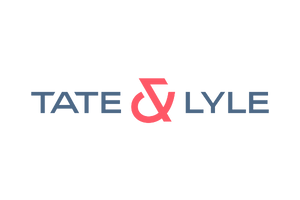Tate & Lyle PLC is a global provider of ingredient solutions focused on healthier food and beverages. Established as a major player in the food ingredients sector, Tate & Lyle specializes in sweeteners, texturants, and fiber enrichments, serving a broad range of industries including beverages, dairy, bakery, snacks, soups, sauces, confectionery, personal care, animal feed, and pharmaceuticals. The company’s product portfolio includes crystalline fructose, sucrose, starches, corn syrup, dextrose, and glucose, marketed under well-known brands such as Purefruit, Fructopure, Krystar, Tasteva, Amydex, Maltosweet, Star-Dri, Neto, Mira-Cap, Mira-Mist, Mira-Sperse, and Resistamyl.
Headquartered in London, UK, Tate & Lyle operates across the Americas, Asia Pacific, Europe, the Middle East, and Africa. The company has repositioned itself to be at the forefront of the future of food, emphasizing innovation, sustainability, and health. It has a strong science-led growth agenda, evidenced by a robust innovation pipeline and a portfolio of over 540 patents granted, with more than 220 pending. In 2024, Tate & Lyle reported revenues of £1,647 million and an adjusted EBITDA of £328 million, reflecting steady growth and profitability.
Sustainability is a core aspect of Tate & Lyle’s strategy, with commitments to reduce greenhouse gas emissions, increase renewable energy use, and promote sustainable agriculture. The company reported an 11% reduction in Scope 1 and 2 emissions and a 20% reduction in Scope 3 emissions from a 2019 baseline. It also supports sustainable corn farming over 367,000 acres. Socially, Tate & Lyle contributes to public health by removing 7.9 million tonnes of sugar from diets through its low- and no-calorie sweeteners and fibers, and has donated 4.2 million meals through charitable partnerships. Governance is also a focus, with 50% of board directors being women and 45% of leadership roles held by women.
Tate & Lyle’s lobbying activities in the EU are registered under the EU Transparency Register since February 2025. Their lobbying efforts align with their business interests in food ingredient regulations, sustainability policies, and innovation frameworks that affect the food and beverage industry. The company engages with EU institutions to influence policies that impact health, nutrition, agriculture, and environmental sustainability.


